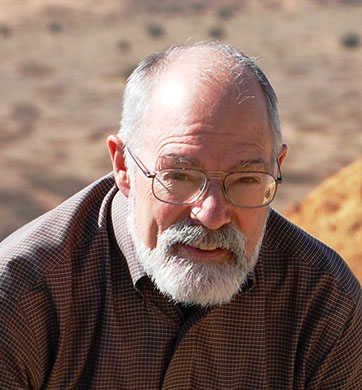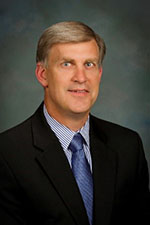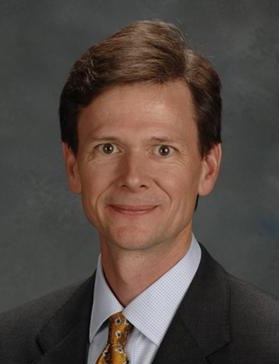
July 25 | 8:30 am – 5:00 pm | TSRB, 85 5th St NW, Atlanta, GA
Presentations | Flyer | Agenda | Logistics | Biographies
Thank you to all who were able to join and participate! We will be posting the videos here - please check back!
Powerpoint Presentations
Opening Plenaries: Valentine and Melda
Luncheon Plenary: Sovacool
Energy Storage for PV and EV Systems
Energy Efficiency and Solid State Lighting
Final Plenaries: Laitner and Brown
Flyer
Reset: A Forum and Celebration of Energy Transitions
Georgia Institute of Technology
The pace of change in the economy and society is accelerating. With the globalized marketplace, the sharing economy, new platforms of information and communication, novel functionally-designed materials, new business models, and new political leadership, what will the future bring? And what will this mean for the energy economy?
To brainstorm and debate the wide range of possible energy transitions, Georgia Tech’s School of Public Policy will be hosting a Forum on Tuesday, July 25th. The Forum has two goals.
First, we want to celebrate the successes of Georgia Tech’s NSF Interdisciplinary Graduate Research and Training (IGERT) program focused on new materials for the energy economy and the policy environment that shapes their success or failure. After seven years and 36 IGERT fellows, what have we learned?
Second, we aspire to look ahead to the future research agenda aimed at enabling the transition to a clean and advanced energy economy. What issues and challenges need to be addressed to facilitate this transition, and how can these advances be achieved?
The forum will feature keynote talks by four internationally recognized energy strategists who will address: the current status of the energy transition, ways to envision and develop strategies to accelerate the transition, and the possible workforce, economic, and environmental impacts of achieving an advanced energy economy.
The forum will also have three technology-focused expert sessions devoted to three pivotal energy technology systems:
-
Solar photovoltaics
-
Energy storage
-
Solid state lighting
Each technology session will highlight S&T accomplishments and remaining challenges, focused on advanced materials, their balance of systems, and the associated policy and economic issues, spotlighting the research of IGERT faculty and fellows.
Agenda
|
8:30 am
|
Registration, Coffee and Networking
|
|
9:00 am
|
Welcoming Remarks Dr. Husbands Fealing, Chair, School of Public Policy
Professor Elsa Reichmanis, Chemistry and Biochemistry
Opening Plenary: "Current Status of the Energy Transition"
by Professor Scott Valentine, National University of Singapore
--Introduction by NSF Fellow Jonah Bea Taylor, History, Technology and Society
Plenary Address: “Envisioning Future Energy Technologies”
by Aaron Melda, Tennessee Valley Authority
--Introduction by NSF Fellow Hye Kyung Kim, Chemistry and Biochemistry
|
|
10:00 am
|
Break
|
|
10:15 am
|
Solar PV Systems
Setting the stage by Georgia Tech NSF IGERT Faculty:
--Professor Dan Matisoff, School of Public Policy
--Professor Martha Grover, Chemical and Biomolecular Engineering
Research results presented by Georgia Tech NSF Fellows:
Materials and Systems:
--Michael McBride, Chemical and Biomolecular Engineering
--Rebecca Hill, Chemistry and Biochemistry
--Matt Smith, Materials Science and Engineering
Policy and Economics:
--Ross Beppler, School of Public Policy
|
|
11:30 am
|
Discussion of Morning Talks
--Mike Bush, Manager, Generation Planning and Development, Southern Company
|
|
Noon
|
Lunch with Table Topics and Leaders
Plenary Address: "Fast-tracking the Energy Transition”
by Dr. Benjamin Sovacool, University of Sussex
--Introduction by NSF Fellow Matt Cox, The Greenlink Group
|
|
1:00 pm
|
Energy Storage for PV and EV Systems
Setting the stage by Georgia Tech NSF IGERT Faculty:
--Steve Usselman, History, Technology and Society
--Matthew McDowell, Mechanical Engineering
Research results presented by Georgia Tech NSF Fellows:
Materials and Systems
--Eric Tervo, Mechanical Engineering
Policy and Economics
--Caroline Golin, Vote Solar
--Wale Odukomaiya, Mechanical Engineering
|
|
2:00 pm
|
Energy Efficiency and Solid State Lighting
Setting the stage by Georgia Tech NSF IGERT Faculty:
--Professor Bernard Kippelen, Electrical and Computer Engineering
--Professor Valerie Thomas, Industrial and Systems Engineering
Research results presented by Georgia Tech NSF Fellows:
Materials and Systems
--Ryan Murphy, Materials Science and Engineering,
Policy and Economics
--Mallory Flowers, School of Public Policy
|
|
2:45 am
|
Break
|
|
3:00 pm
|
Plenary Address: “The Third Industrial Revolution”
by Skip Laitner, Economic and Human Dimensions Research Associates
--Introduction by NSF Fellow Chris Blackburn, Economics
Plenary Address: “Policy Pathways to an Advanced Energy Economy”
by Professor Marilyn Brown, School of Public Policy
|
|
3:45 pm
|
Discussion of Afternoon Talks
Charles Rossmann, Forecasting and Model Development Manager, Southern Company
|
| 4:15 pm |
Closing Remarks
Elsa Reichmanis, Chemistry and Biochemistry
|
|
4:30 pm
|
Networking Reception
|
Logistics
 The Forum will take place at Georgia Tech’s “Tech Square Research Building” (TSRB) located at 85 5th St NW, Atlanta, GA 30308.
The Forum will take place at Georgia Tech’s “Tech Square Research Building” (TSRB) located at 85 5th St NW, Atlanta, GA 30308.Event Date and Time:
Event Location:
Directions and Parking:
Airport Transportation
-
MARTA: Rapid Rail can be boarded at the airport to our hotel. Stay on train through downtown and exit the N.4 Midtown Station. Cost is $2.50 per person. Ride time: approximately 30 minutes. View Google Map
-
Rental Car: Follow the “From the South” I-75/85 directions above.
-
Atlanta Taxi Service - 404.935.9555
Biographies
Scott Valentine | Aaron P. Melda | Benjamin K. Sovacool | Skip Laitner | Marilyn A. Brown | Mike Bush | Charles Rossmann
Scott Valentine, Lee Kuan Yew School of Public Policy, National University of Singapore
 Dr. Scott Valentine is Assistant Dean (Research) and an Associate Professor at the Lee Kuan Yew School of Public Policy at the National University of Singapore. He was formerly founding Associate Director of the International Masters of Public Policy Program at the Graduate School of Public Policy, University of Tokyo and Director of the Campus Asia program. He serves on the editorial board of the journals Energy Research & Social Science, Corporate Social Responsibility and Environmental Management, Sustainability Science and AIMS Energy. He is the author of numerous peer-reviewed journal articles and book chapters. Recent books include “Fact and Fiction in Global Energy Policy: Critical Questions” (Johns Hopkins University Press - co-authored with Benjamin Sovacool and Marilyn Brown), "Wind Power Politics and Policy" (OUP) and "The National Politics of Nuclear Power" (Routledge – co-authored with Benjamin Sovacool).
Dr. Scott Valentine is Assistant Dean (Research) and an Associate Professor at the Lee Kuan Yew School of Public Policy at the National University of Singapore. He was formerly founding Associate Director of the International Masters of Public Policy Program at the Graduate School of Public Policy, University of Tokyo and Director of the Campus Asia program. He serves on the editorial board of the journals Energy Research & Social Science, Corporate Social Responsibility and Environmental Management, Sustainability Science and AIMS Energy. He is the author of numerous peer-reviewed journal articles and book chapters. Recent books include “Fact and Fiction in Global Energy Policy: Critical Questions” (Johns Hopkins University Press - co-authored with Benjamin Sovacool and Marilyn Brown), "Wind Power Politics and Policy" (OUP) and "The National Politics of Nuclear Power" (Routledge – co-authored with Benjamin Sovacool).
Professor Valentine has over 20 years of diverse international business experience - specializing in business development and organizational change. Past positions include Executive Vice-President of Vektor Multimedia Japan, Managing Director of Asia Pacific Development International, Dean of the British Education College in Tokyo (affiliated with the UK Northern Consortium), and Director of the British Council Training Centre in Taiwan. In academia, he has also worked at the National University of Singapore, University of Tokyo, City University of Hong Kong National Sun Yat Sen University (Taiwan), National Chengchi University (Taiwan), and Shinawatra University (Thailand). Prof. Valentine's academic achievements include: PhD Public Policy (NUS), DBA (CalSouthern) MBA (Adelaide), MSc in Environmental Management (NUS), and MA in Advanced Japanese Studies (Sheffield).
Aaron P. Melda, Tennessee Valley Authority, USA
 Aaron Melda is currently responsible for the safe, reliable, real-time operation of TVA’s bulk transmission system and power supply. Aaron has more than 17 years of experience in leadership roles throughout the power generation industry He previously served as Vice President, Enterprise Planning where he was responsible for TVA’s strategic planning process, long range financial plan, load and commodity forecasting, commodity risk oversight, and fleet asset planning and strategy.
Aaron Melda is currently responsible for the safe, reliable, real-time operation of TVA’s bulk transmission system and power supply. Aaron has more than 17 years of experience in leadership roles throughout the power generation industry He previously served as Vice President, Enterprise Planning where he was responsible for TVA’s strategic planning process, long range financial plan, load and commodity forecasting, commodity risk oversight, and fleet asset planning and strategy.
Melda is originally from the Atlanta area. Before joining TVA in 2005, he held leadership roles with Siemens Power Generation in Georgia. He began his career there as Field Engineer and Project Manager providing turbine and generator services to utilities across the United States. He also obtained certifications in senior project management, failure modes and effect analysis and also earned a Green Belt in Lean Tools while with Siemens. Melda resides in Chattanooga with his wife Jennifer, two daughters Kaitlyn and Allison, and son Knox. Melda has a BS in Mechanical Engineering from Georgia Tech and an MBA in Business Administration from Vanderbilt University.
Benjamin K. Sovacool, University of Sussex, UK
 Dr. Benjamin K. Sovacool is Professor of Energy Policy at the Science Policy Research Unit (SPRU) at the School of Business, Management, and Economics, part of the University of Sussex in the United Kingdom. There he serves as Director of the Sussex Energy Group and Director of the Center on Innovation and Energy Demand which involves the University of Oxford and the University of Manchester. He is also Director of the Center for Energy Technologies and Professor of Business and Social Sciences in the Department of Business Development and Technology at Aarhus University in Denmark. He held previous positions at the Vermont Law School, National University of Singapore, and Oak Ridge National Laboratory. Professor Sovacool works as a researcher and consultant on issues pertaining to energy policy, energy security, climate change mitigation, and climate change adaptation. More specifically, his research focuses on renewable energy and energy efficiency, the politics of large-scale energy infrastructure, designing public policy to improve energy security and access to electricity, and building adaptive capacity to the consequences of climate change. Professor Sovacool is the founding Editor-in-Chief for the international peer-reviewed journal Energy Research & Social Science, published by Elsevier, and he sits on the Editorial Advisory Panel of Nature Energy. He is the recipient of the 2015 “Dedication to Justice Award” given by the American Bar Association and a 2014 “Distinguished Visiting Energy Professorship” at the Environmental Law Center at Vermont Law School, and he has received or managed large competitive grants from the U.S. Department of Energy, U.S. National Science Foundation, MacArthur Foundation, Rockefeller Foundation, NordForsk, Energy Technology Development and Demonstration Program of Denmark, and the Danish Council for Independent Research.
Dr. Benjamin K. Sovacool is Professor of Energy Policy at the Science Policy Research Unit (SPRU) at the School of Business, Management, and Economics, part of the University of Sussex in the United Kingdom. There he serves as Director of the Sussex Energy Group and Director of the Center on Innovation and Energy Demand which involves the University of Oxford and the University of Manchester. He is also Director of the Center for Energy Technologies and Professor of Business and Social Sciences in the Department of Business Development and Technology at Aarhus University in Denmark. He held previous positions at the Vermont Law School, National University of Singapore, and Oak Ridge National Laboratory. Professor Sovacool works as a researcher and consultant on issues pertaining to energy policy, energy security, climate change mitigation, and climate change adaptation. More specifically, his research focuses on renewable energy and energy efficiency, the politics of large-scale energy infrastructure, designing public policy to improve energy security and access to electricity, and building adaptive capacity to the consequences of climate change. Professor Sovacool is the founding Editor-in-Chief for the international peer-reviewed journal Energy Research & Social Science, published by Elsevier, and he sits on the Editorial Advisory Panel of Nature Energy. He is the recipient of the 2015 “Dedication to Justice Award” given by the American Bar Association and a 2014 “Distinguished Visiting Energy Professorship” at the Environmental Law Center at Vermont Law School, and he has received or managed large competitive grants from the U.S. Department of Energy, U.S. National Science Foundation, MacArthur Foundation, Rockefeller Foundation, NordForsk, Energy Technology Development and Demonstration Program of Denmark, and the Danish Council for Independent Research.
Skip Laitner, Economic and Human Dimensions Research Associates, USA
 John A. “Skip” Laitner is an international resource economist who leads a team of consultants, the Economic and Human Dimensions Research Associates based in Tucson, Arizona. Their primary focus is what he calls The Resource Imperative. He is the immediate Past President of the Association of Environmental Studies and Sciences (AESS), an independent interdisciplinary professional association in higher education. He is also Deputy Head of economic modeling of energy and environment, for the Russian Presidential Academy of National Economy and Public Administration (RANEPA).
John A. “Skip” Laitner is an international resource economist who leads a team of consultants, the Economic and Human Dimensions Research Associates based in Tucson, Arizona. Their primary focus is what he calls The Resource Imperative. He is the immediate Past President of the Association of Environmental Studies and Sciences (AESS), an independent interdisciplinary professional association in higher education. He is also Deputy Head of economic modeling of energy and environment, for the Russian Presidential Academy of National Economy and Public Administration (RANEPA).
Skip is the former Director of Economic and Social Analysis for the American Council for an Energy-Efficient Economy (ACEEE). He previously served almost 10 years as a Senior Economist for Technology Policy for the US Environmental Protection Agency (EPA). He left the federal service in June 2006 to focus his research on developing a more robust technology and behavioral characterization of energy efficiency resources for use in energy and climate policy analyses and within economic policy models. He also provides technical support for a variety of local governments in the development of energy and climate profiles, especially as they positively shape and enhance long-term sustainable development goals. His most recent support includes work for the Grand Duchy of Luxembourg, San Diego County, California and the Metropolitan Region of Rotterdam and Den Haag (MRDH) in Netherlands.
In 1998 Skip was awarded EPA's Gold Medal for his work with a team of economists to evaluate the impact of different strategies that might assist in the implementation of smart climate policies. In 2003 the US Combined Heat and Power Association gave him an award to acknowledge his contributions to the policy development of that industry. In 2004 his paper, “How Far Energy Efficiency?” catalyzed new research into the proper the characterization of efficiency as a long-term resource.
Author of more than 320 book chapters, journal articles, and reports, Skip has 47 years of involvement in the environmental, energy and economic policy arenas. He has provided technical seminars in diverse places as Australia, Canada, China, France, Germany, Ireland, Italy, Korea, New Zealand, Netherlands, Russia, South Africa, and Spain. He has a master’s degree in Resource Economics from Antioch University. Further background can be found on Wikipedia, at: https://en.wikipedia.org/wiki/John_A._Laitner.
Marilyn Brown, Georgia Institute of Technology, USA
 Marilyn A. Brown is the Brook Byers Professor of Sustainable Systems in the School of Public Policy at the Georgia Institute of Technology, where she is Director of the Climate and Energy Policy Lab and a Presidential appointee to the Board of Directors of the Tennessee Valley Authority. Her current research focuses on the the design of public policy to promote clean energy systems, the integration of distributed resources into the electric grid, and the creation of jobs in the advanced energy economy. Previously she held leadership positions at Oak Ridge National Laboratory where she conducted several national climate change mitigation studies and became a leader in the analysis and interpretation of energy futures in the United States. She has authored more than 250 publications and five books including Green Savings: How Markets and Policies Drive Energy Efficiency (Praeger Press, 2015) and Fact and Fiction in Global Energy Policy (Johns Hopkins University Press, 2016). Among her honors and awards, she is a co-recipient of the 2007 Nobel Peace Prize for co-authorship of the report on Mitigation of Climate Change, she has served on eight committees of the National Academies of Sciences (currently on Geographical Sciences), and she is a member of the U.S. Department of Energy’s Electricity Advisory Committee.
Marilyn A. Brown is the Brook Byers Professor of Sustainable Systems in the School of Public Policy at the Georgia Institute of Technology, where she is Director of the Climate and Energy Policy Lab and a Presidential appointee to the Board of Directors of the Tennessee Valley Authority. Her current research focuses on the the design of public policy to promote clean energy systems, the integration of distributed resources into the electric grid, and the creation of jobs in the advanced energy economy. Previously she held leadership positions at Oak Ridge National Laboratory where she conducted several national climate change mitigation studies and became a leader in the analysis and interpretation of energy futures in the United States. She has authored more than 250 publications and five books including Green Savings: How Markets and Policies Drive Energy Efficiency (Praeger Press, 2015) and Fact and Fiction in Global Energy Policy (Johns Hopkins University Press, 2016). Among her honors and awards, she is a co-recipient of the 2007 Nobel Peace Prize for co-authorship of the report on Mitigation of Climate Change, she has served on eight committees of the National Academies of Sciences (currently on Geographical Sciences), and she is a member of the U.S. Department of Energy’s Electricity Advisory Committee.
Mike Bush, Southern Company, USA
 Manager, Generation Planning and Development
Manager, Generation Planning and Development
Mike joined Southern Company full time in 1990 after working at Mississippi Power Company as a cooperative education student. He is currently responsible for providing asset management and generation siting and development services (including renewable generation development) for the retail operating companies of Southern Company. His previous responsibilities included positions as Manager of Energy Trading and Director of Portfolio Management. Mike and his wife Laura have five children.
Charles G. Rossmann, Southern Company, USA
 Charles Greer Rossmann is Manager of Forecasting and Model Development in the Resource Planning department of Southern Company, an energy company providing electricity to retail customers in four southeastern states, providing natural gas to retail customers in seven states and providing wholesale electricity throughout the US. He holds a Ph.D. in economics from the University of Colorado at Boulder. He is responsible for the annual development of multiple long-term fuel price scenario forecasts to support investment decision-making.
Charles Greer Rossmann is Manager of Forecasting and Model Development in the Resource Planning department of Southern Company, an energy company providing electricity to retail customers in four southeastern states, providing natural gas to retail customers in seven states and providing wholesale electricity throughout the US. He holds a Ph.D. in economics from the University of Colorado at Boulder. He is responsible for the annual development of multiple long-term fuel price scenario forecasts to support investment decision-making.
He began his career at Southern Company analyzing the economics of environmental policy and its implementation, especially focusing on prospective CO2 control and electricity generation. He has been with Southern Company since 1998.
He is a former president of the US Association for Energy Economics. Before joining Southern Company he was Research Scholar at the International Institute for Applied Systems Analysis (IIASA), Laxenburg, Austria.
